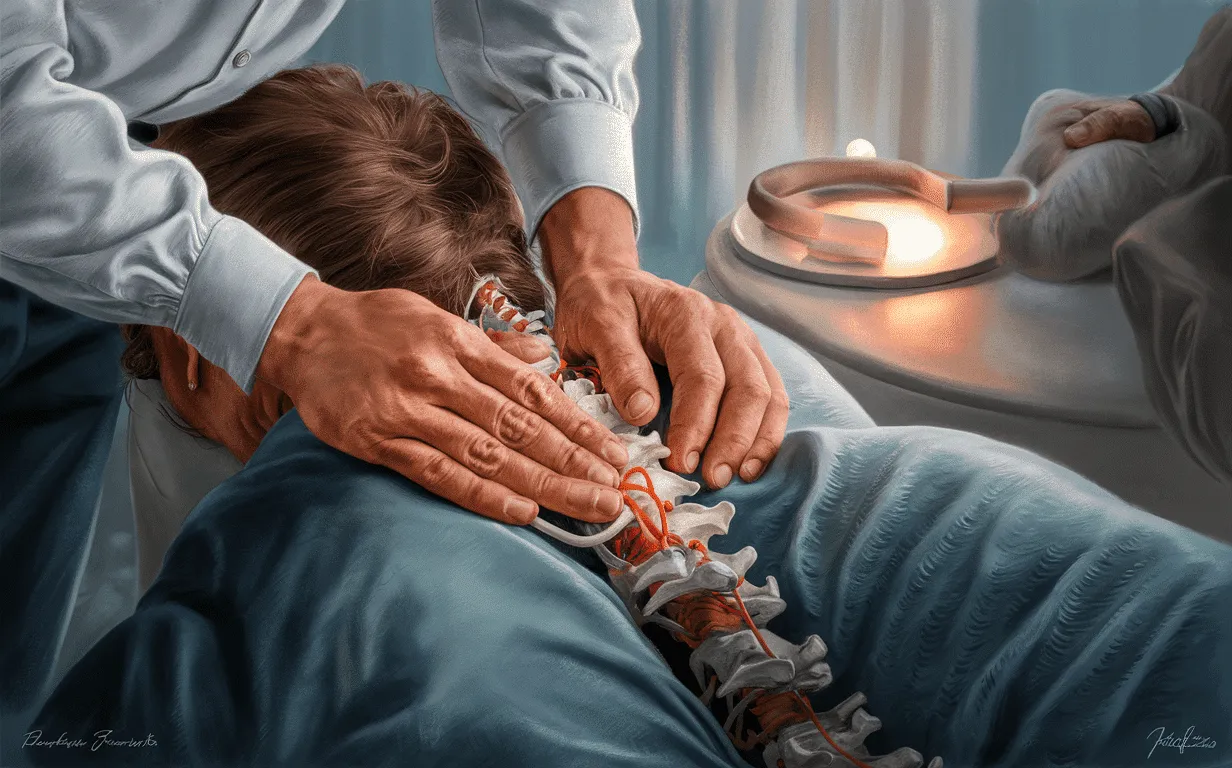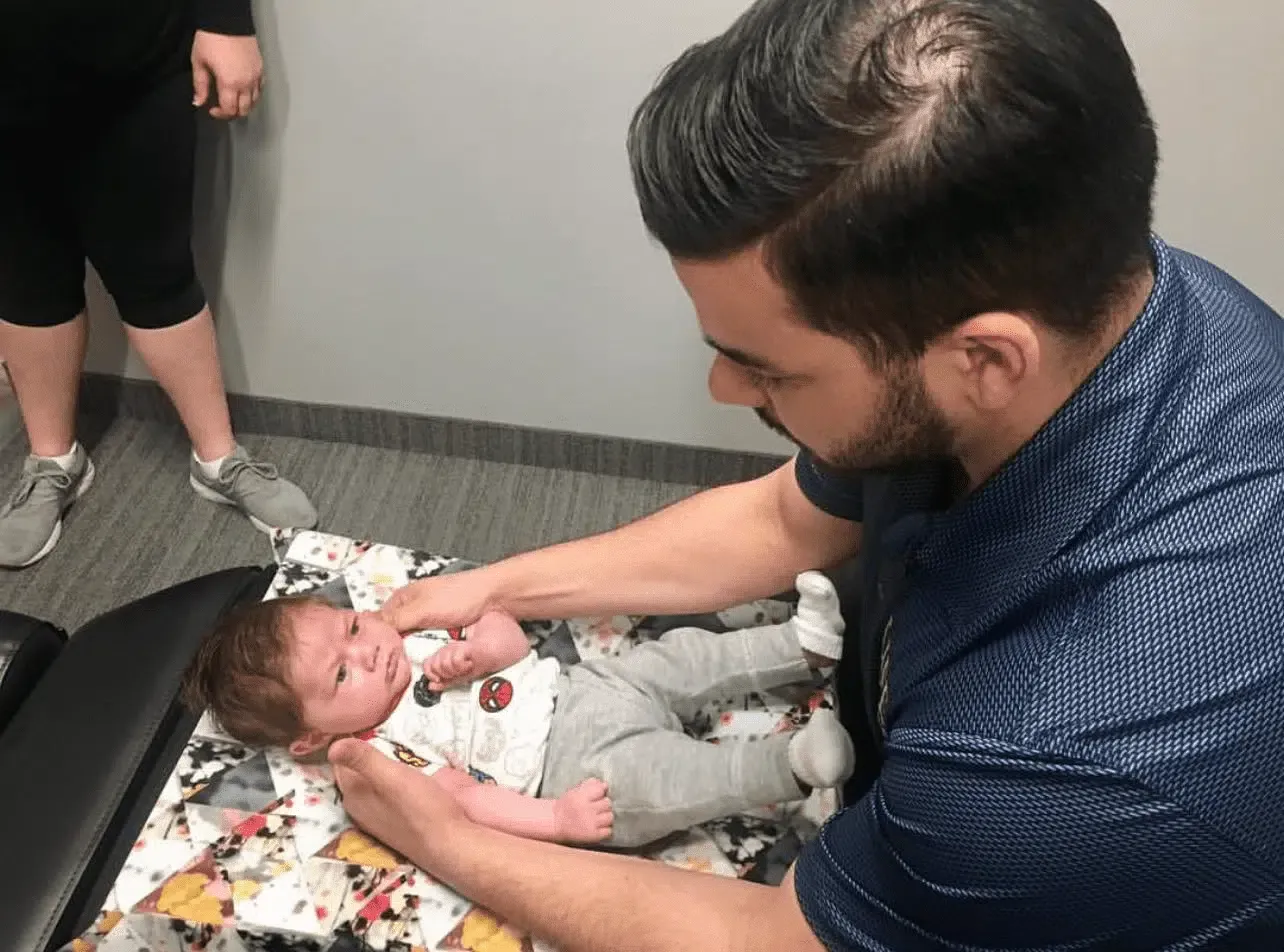Can a Chiropractor Help With Nerve Pain? Unbelievable Truth!
Imagine living with a constant, nagging pain that just wont let up. It's like a relentless storm cloud hovering ove...
Numbness and tingling are abnormal sensations that can be felt anywhere on your body, but you will often feel them in the palms of your hands, soles of feet, or even around a particular joint. It might appear mostly benign when starting with barely noticeable feelings like pins-and-needles during moments where there isn’t much going on. But soon enough, those pesky little twinges become something else entirely: extreme sensitivity over time signals some sort of serious issue taking root beneath the surface. Explore Family Chiropractic in Aurora is a facility that cares about you. They are committed to helping you get on the path of a healthy and energized lifestyle — which is exactly what the state-of-the-art facility is designed to achieve for you. The doctors combine compassionate expertise in prenatal and pediatric care with cutting-edge chiropractic treatment techniques, ensuring that your entire family will be put on the easiest and most effective path to improvement.

As mentioned above, numbness and tingling or prickling sensations are felt all over your body, though they’re most common in the hands or feet. Several things can cause paresthesia, the medical term for numbness and tingling, such as sitting in a certain position for a long time or even falling asleep in a certain position. Suppose you have numbness and tingling persistently without an obvious reason for it happening. In that case, it could be a symptom of something more serious like multiple sclerosis (MS) or carpal tunnel syndrome (CTS). Treatment will depend on what diagnosis is made through a thorough evaluation by medical professionals; however, if left untreated, MS might eventually result in painless paralysis, while CTS may lead to permanent nerve damage, which causes intense burning sensation shooting up one’s arms at night when sleeping.
Aside from the more common staying at a position when sitting or standing for a long time, there is a deeper reason sometimes. Putting too much pressure on the nerves often causes numbness and tingling in your body.
It’s not always easy to pinpoint the cause of numbness or tingling. Sometimes, a specific injury can produce these symptoms, such as an injured nerve in your neck or herniated disc in your spine. Placing pressure on nerves is also common; carpal tunnel syndrome and scar tissue are examples of this type of problem. Likewise, inflammation from conditions like frostbite or shingles (a painful rash) can affect one’s skin, leading to numbness over time due to damage done by inflammatory cells that have penetrated tissues near peripheral nerves.
Numbness and tingling sometimes occur for no apparent reason, but there are many possible causes, including an injury that has affected a nerve at some point during the recovery process.
A variety of medical conditions may also cause you physical and mental symptoms because they affect brain activity at some point.

Sometimes, medical problems can also cause numbness and tingling all over your body. People with diabetes have “pins and needles” feelings or tingling in the feet; this sensation may be due to an abnormal narrowing of blood vessels. This condition is known as neuropathy, which means damaged nerves. The most common symptom of peripheral neuropathy is a painful or unpleasant feeling in the toes (paresthesias). Less commonly, the patient experiences numbness. Pain can also occur when there are no physical signs of damage to the nerves themselves if you accidentally put your foot into hot water. Sometimes this kind of pain feels like it comes from outside the body rather than inside it – although it is caused by a problem with the patient’s nerves.
Some illnesses that can cause numbness and/or tingling include overactive bladder (intermittent and urgent), irritable bowel syndrome (IBS) – multiple sclerosis, stroke or transient ischemic attack (mini-stroke), an inflamed bile duct in the gut (cholangitis), gallstones, stomach ulcers and a condition called diverticulitis.

When you stand up after sitting for a long time, your body might experience numbness or tingling sensations. But if these symptoms don’t go away within minutes and cause other symptoms like dizziness or muscle spasms- it’s important to consult with a doctor. Numbness in the legs can be caused by serious injuries such as spinal cord injury; however, this is uncommon because usually, people have difficulty moving their arms when they have nerve damage due to an accident or medical condition that causes paralysis of the limbs rather than just feeling painless sensation during touch.
In some cases where there are no obvious causes for continued feelings of numbness and tingles on occasion- physicians often think about serious conditions which require treatment.
Determining the cause of your weird symptoms like numbness and tingling starts with getting a proper medical history. Your chiropractor will ask for your medical history. Be sure to report all symptoms, even if they don’t seem related, as well as any previously diagnosed conditions. Note the date and type of vaccinations you have had recently or in the past year, and if there is an injury that might be relevant (e.g., broken arm), mention it also.
This also means asking you about any other health issues, past injuries or surgeries, drug use (prescription as well), allergies to medications, among many other things that would make sense for us to know when trying to figure out what is going on in your body. Next comes performing an exam which may include orthopedic testing such as range-of-motion tests and neurology exams, including nerve conduction velocity studies. These are all aimed at finding the root cause of this condition to provide you with appropriate treatment options.
Once the condition is diagnosed, the chiropractor will immediately start the treatment plan. A chiropractor with specialized training in treating a particular condition will provide additional or alternative therapies, such as myofascial release therapy or manual lymphatic drainage. Manual manipulation techniques include soft tissue techniques that use slow, sustained pressures against muscle groups, gentle rocking motions of joints while moving slowly around them, stretching muscles and ligaments gently without bounces or shortening stresses on tissues; passive mobilizations by positioning joints on; and passive stretches of the tissues. A chiropractor may also use heat or cold, ultrasound, dry needling (inserting thin acupuncture-like needles into muscles), and electrical stimulation in the form of units to provide comfort and relief. Tramadol 50 mg online http://medicalspecialistsoffairfield.com/tramadol/
Typically, the goal of chiropractic treatment is to relieve pressure on nerves that come out from your spine or pass through narrow passages in your body. When these are particularly vulnerable because they become compressed (herniated discs), even slight movements can worsen. Chiropractors adjust vertebrae for tension and toxins to be released, which makes symptoms better. Finally, improved circulation also relieves pain by reducing nerve-compression issues and restoring normal neural signaling between your brain and all parts of your body!
Numerous case studies attest to the effectiveness of chiropractic treatment in treating tingling and numbness. One woman who was only 24 years old suffered from paresthesia in her right arm. She feels the “pins and needles” sensation, but it usually subsides after a few minutes. However, this symptom persisted for two years, leaving her unable to sleep at night because they would be awoken by their symptoms every time it happened during bedtime routines like brushing teeth or washing hands. After one week under care with a local chiropractor, however, she was able to experience complete relief from the chronic pain.
In one case study, 162 patients were examined with such conditions, and after receiving nine visits to the chiropractor, 85% of these subjects experienced improvement.
As with any treatment, find a chiropractor with whom you feel confident working, well trained in the types of problems you are experiencing, and a practitioner who listens to your questions and answers them honestly.
If you’re dealing with tingling and numbness, it may be time to visit a chiropractor. No matter what the cause of your discomfort is, there are many benefits associated with receiving regular care from qualified chiropractic professionals to lessen or eliminate symptoms that can interfere with daily life. To find out if this form of health care would work well for you, contact Explore Family Chiropractic in Aurora today! You deserve quality healthcare—especially when so much scientific research has been conducted on how effective chiropractic treatment can be for those who suffer from chronic pain. It’s never too late to start getting healthier by putting yourself in good hands today.

Imagine living with a constant, nagging pain that just wont let up. It's like a relentless storm cloud hovering ove...

Are you experiencing numbness, tingling, or pain in your hands and feet? You might be dealing with neuropathy, a co...

There are a lot of things that can cause pain. Sometimes it is a result of an accident, while other times, it can r...

We provide customized chiropractic services to help you find your unique path to transformation. Get started transforming your health today with Explore Family Chiropractic.